On July 16, the Office of Scientific Research at Beijing City University, in collaboration with the School of Biomedicine, the School of Information Technology , and the School of Urban Construction at BCU, jointly hosted the Forum on Youth Talent Development at the Hangtiancheng Campus. Moderated by Professor Qiao Yanjiang, Discipline Leader in Chinese Traditional Medicine at School of Biomedicine, the forum brought together distinguished scholars from leading universities and research institutes across China for in-depth academic exchange.
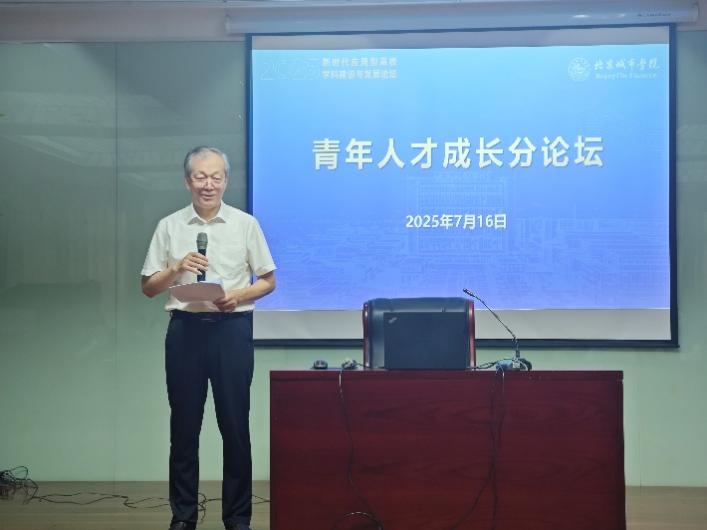
The opening keynote was delivered by Associate Professor Song Haifeng from Beihang University, titled "Intelligent Sensing and Control: Dual-Track Innovation from High-Speed Rail to Precision Cancer Therapy." He presented his team’s pioneering work spanning two domains. On one track, they developed a “driving-processing-effectiveness” collaborative framework to address challenges in perception, control, and safety within cross-network high-speed rail systems, enabling dynamic optimization of operational resources under national infrastructure strategies. On the other, they extended this intelligent paradigm into biomedical engineering, developing an "AI + Medical Imaging" system for precise tumor ablation—offering a new model for precision medicine. This dual-track approach highlighted not only the real-world applicability of intelligent technologies in complex engineering systems but also the vast potential of cross-domain technological transfer.
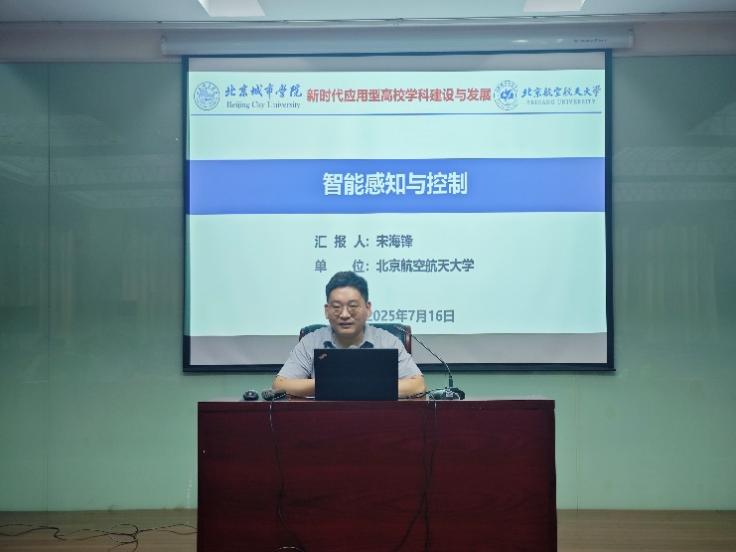
Dr. Guo Qiuyan, Associate Researcher at the Artemisinin Research Center, China Academy of Chinese Medical Sciences, delivered a speech titled "Carrying Forward the Artemisinin Spirit, Empowering Innovation for the Future," offering a profound reflection on the evolving spirit of scientists. Tracing the legendary journey of Tu Youyou’s team—from early medical aspirations to the historic discovery of artemisinin—Dr. Guo structured her narrative around four themes: “First Cry of the Deer; Answering the Call in Crisis; A Chinese Solution for the World; Continuing the Legacy, Inspiring Innovation.” She emphasized that the essence of the Artemisinin Spirit lies in “inheritance and innovation.” Today, the research team is embracing new missions, harnessing modern science to revitalize traditional Chinese medicine and affirming its strategic role in building a Healthy China.
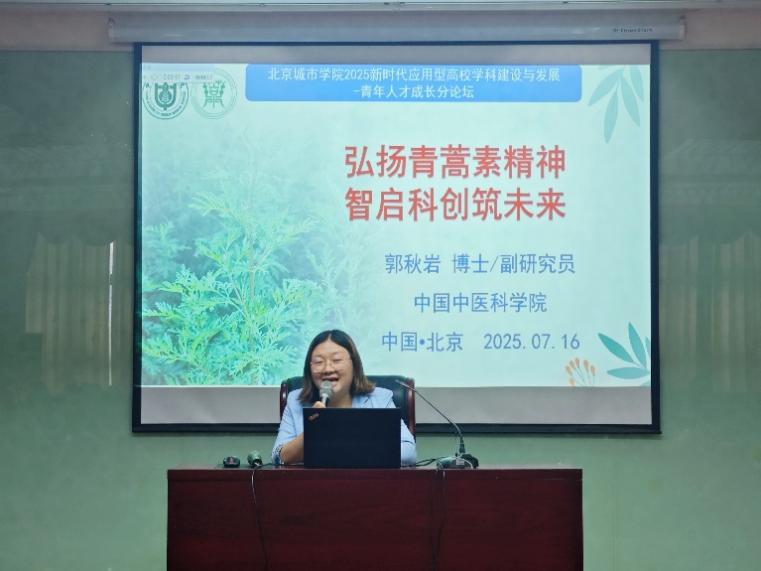
Associate Professor Feng Juan from Capital Medical University shared insights on "Chasing Academic Dreams: Teaching, Mentoring, and Advancing Research." As a young scholar in natural product synthesis, she focuses on biofunction-oriented heterocyclic small molecule synthesis and has advanced full-synthesis techniques for active ingredients derived from traditional Chinese medicine, achieving a transition from “catching up” to “leading the field.” Committed to the philosophy of “growing through exploration, thriving through passion,” she integrates research excellence with dedicated teaching. Her presentation, rich in both academic depth and educational warmth, offered a compelling model for integrating research and talent development in applied universities, exemplifying the dual responsibilities shouldered by young scientists today.
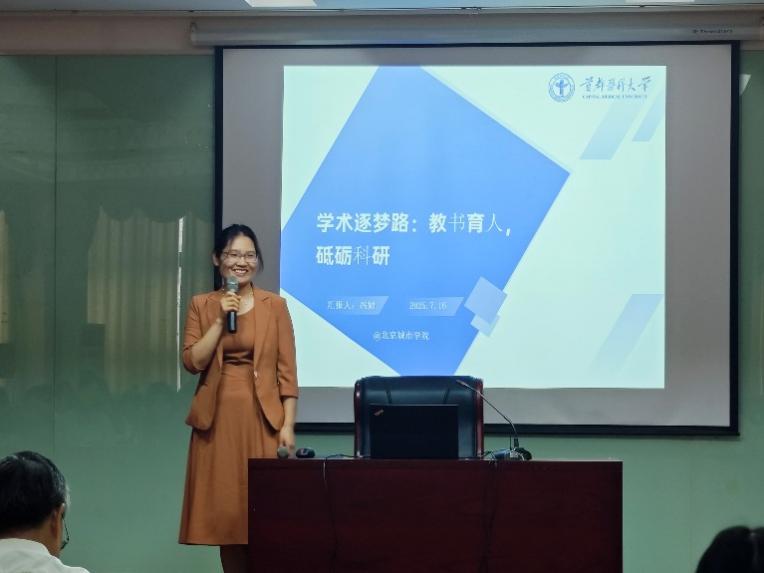
Raising the question, “Is architecture alternative art or cold engineering?” Associate Professor Yang Anqi from BCU reflected a common dilemma among architectural scholars. Using her own research transformation as a case study, she analyzed pathways for applied disciplines to break through constraints. After repeated setbacks in grant applications, she underwent a cognitive shift—moving beyond the binary of “art vs. engineering” toward dissolving disciplinary boundaries through big data and digital humanities. Drawing from personal experience, she also explored researchers’ self-perception and philosophical resilience, sparking resonance among attendees and offering valuable guidance for young scholars navigating challenges in their academic journeys.
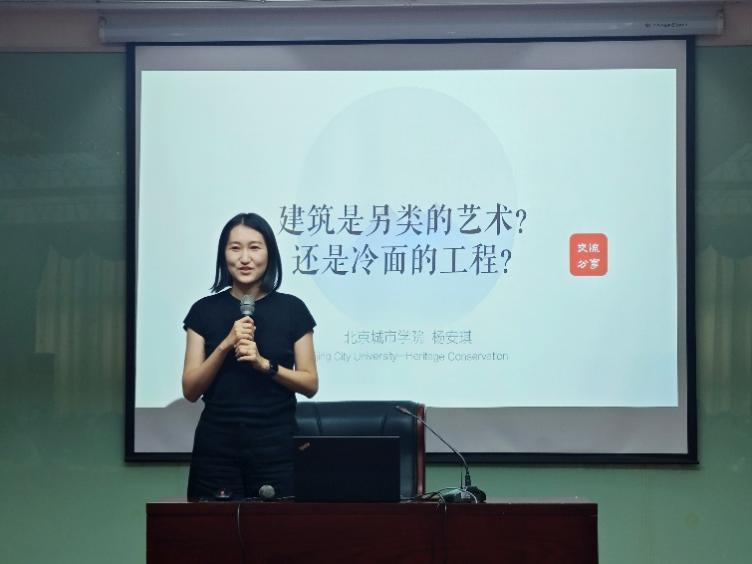
Featuring experts from diverse disciplinary backgrounds, the forum offered multidimensional insights into core issues in applied university development, with a focused discussion on pathways for youth talent growth. Looking ahead, BCU will continue building a high-quality education system centered on applied disciplines, driven by interdisciplinary integration and innovation, to empower the next generation of professionals.
